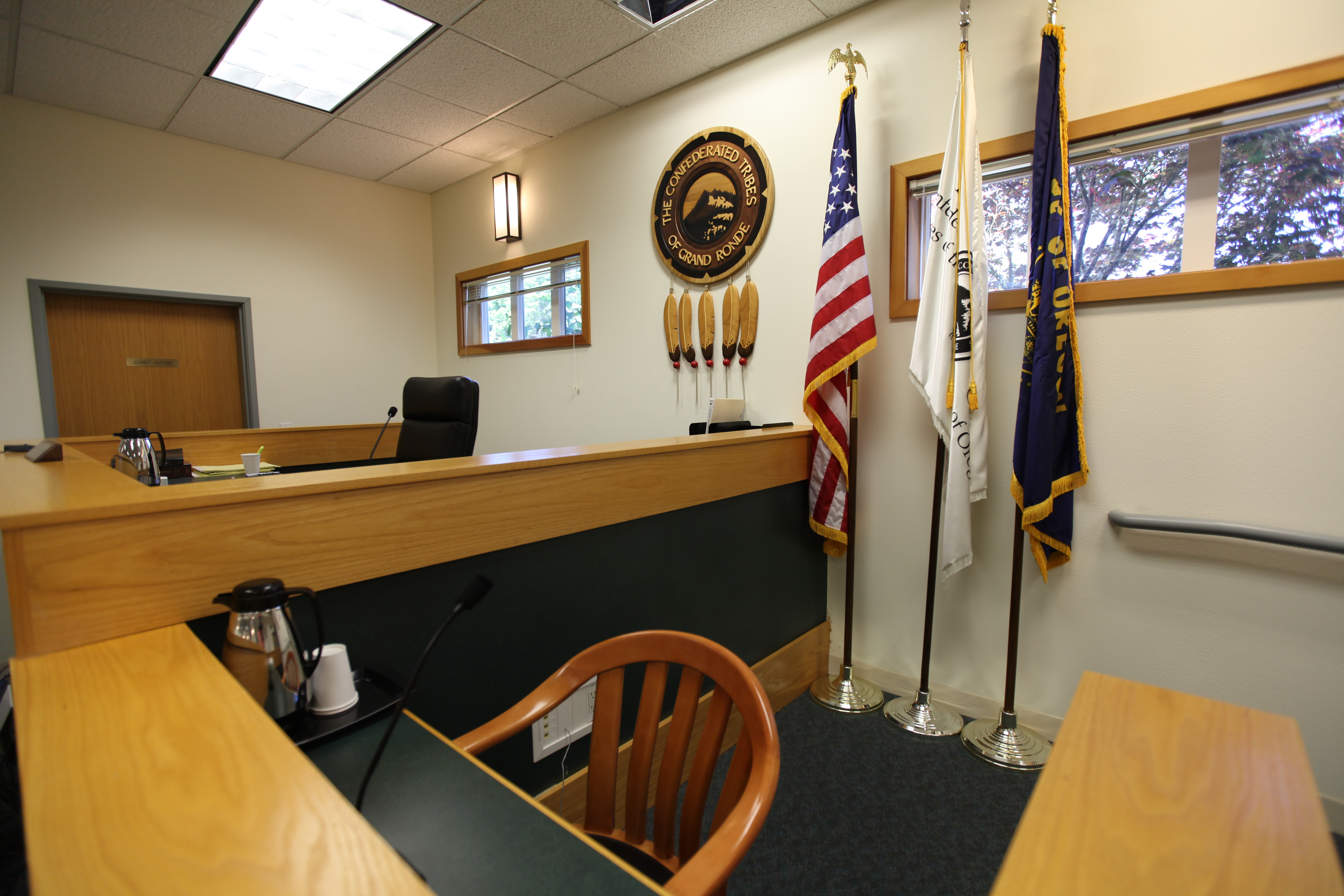Tribal Government & News
Appeals court reverses Cherry decision, sends case back to lower court

By Nicole Montesano
Smoke Signals staff writer
A Tribal Appeals Court panel has reversed the Tribal Court’s decision acquitting former Spirit Mountain Casino Marketing Manager Chris Cherry of violating a Tribal ordinance prohibiting use of Tribal resources to solicit or distribute election campaign materials.
The appellate court sent the case back to the lower court to reconsider, asking it to “affirm or dismiss the citation in a written opinion that sets out its analysis.”
The original trial was held in March of this year and the verdict was appealed by the Tribe.
In mid-August 2024, Cherry was cited under the Tribal Public Safety Ordinance for violating its campaign provision, which bars using Tribal resources to solicit or distribute campaign materials. It carries a maximum penalty of a $50 fine and is a civil ordinance violation.
Cherry was accused of having used Tribal resources to print campaign material for his wife, Michael Cherry, who was running for reelection to Tribal Council. Chris Cherry testified that Michael Cherry never directed him to produce any campaign materials through his work and was unaware of his effort to correct the proofs. Michael Cherry was not cited in the incident. She lost her 2024 reelection bid, and Chris Cherry is no longer employed by the casino.
The Cherrys said at the time, they believed the complaint and social media allegations were tactics to undermine her campaign.
Tribal Police Chief Jake McKnight, whose department investigated the incident and issued the citation, said, “I want to make clear that we don’t get involved with political decisions whatsoever; we base our decisions on facts. … Our actions had nothing to do with a political stance; it was all based off facts we collected at the time of the incident.”
McKnight added, “I have a lot of respect for the Cherry family,” noting that he has known them most of his life. “We’re just doing our jobs.”
Chris Cherry did not respond to a request for comment.
His attorney, Dori Brattain, argued that Cherry’s actions were no different than someone printing out a recipe for personal use. She said Cherry had merely spent a few minutes checking the “visual acuity” of the campaign banners after the vendor complained they were not printing correctly, then made a few corrections before emailing the file back to himself and returning it to the vendor.
“He was looking at the acuity on his work computer for those six minutes,” Brattain said. “He printed it out to see what it looked like and that was the end of his use. The material that he printed to look at was not used for distribution and it was not used for solicitation. And I believe that is what the finding of the lower court was and the evidence supports that.”
Prosecutor and Tribal Senior Staff Attorney Brooks Wakeland argued to the appellate court that Cherry had taken advantage of his access to resources that other candidates did not have.
“So, while you might hear an argument that other people used the printers and used their computers to print out recipes or concert tickets or anything else, that may be a violation of employment policy here at the Tribe, but it’s certainly not enacted in the Tribal law,” Wakeland told the appellate court panel, noting that such uses are relatively trivial in the eyes of the law.
“However, when we’re talking about Tribal elections, that cuts to the very integrity and the core of Tribal sovereignty, and the Tribe enacted this ordinance in order to assure that those are fair,” Wakeland said. “And so, when you have an employee who uses resources such as marketing software, computers that aren’t available to anyone else, printers that aren’t available to anyone else, a contact that he knew from his time in marketing … That’s the very definition of using Tribal resources to solicit campaign materials, which is what is expressly outlined in the ordinance.”
He argued that if Cherry had been able to make the corrections on his home computer, he would have done so.
Wakeland said the fact that Cherry had used his work computer and printer to develop materials that he then, on his own time, had printed and distributed around the Tribal campus, meant that he had violated the ban on solicitation and distribution.
“If it wasn’t for his access to these Tribal resources, he would not have been able to either solicit or distribute these images, and that’s the problem,” Wakeland said.
Wakeland argued that Tribal Court Chief Judge Patrick Melendy erred in issuing his verdict that Cherry “did not solicit and distribute,” noting that the ordinance says “to solicit or distribute election campaign materials.”
Brattain argued that Melendy had considered both words separately.
“I think the lower court did weigh the evidence on distributing, that it looked at also the solicitation portion of the ordinance and found that there was neither,” she said. “I guess I would rephrase it this way, if I was to break it down; that the trial court said he did not solicit and he did not distribute.”
Wakeland said he disagreed.
“The judge states ‘It’s my job today to decide whether or not Mr. Cherry solicited and distributed campaign materials using Tribal resources.’ He was very clear,” Wakeland said.
Appellate judges Robert J. Miller, Patricia Paul and Patricia Davis concurred, writing in their ruling that “the court improperly amended the language of the ordinance … We reverse the trial court’s decision dismissing the citation. We remand this case to that court to apply the ordinance as written and to affirm or dismiss the citation in a written opinion that sets out its analysis.”
Updates will be posted online at www.smokesignals.org.
